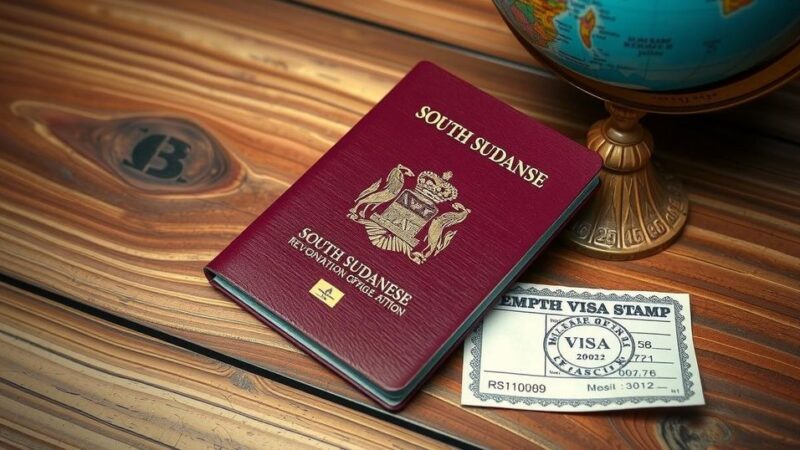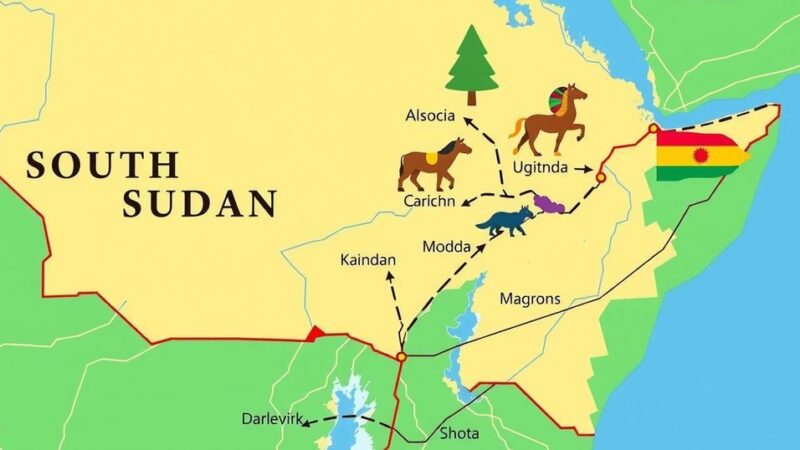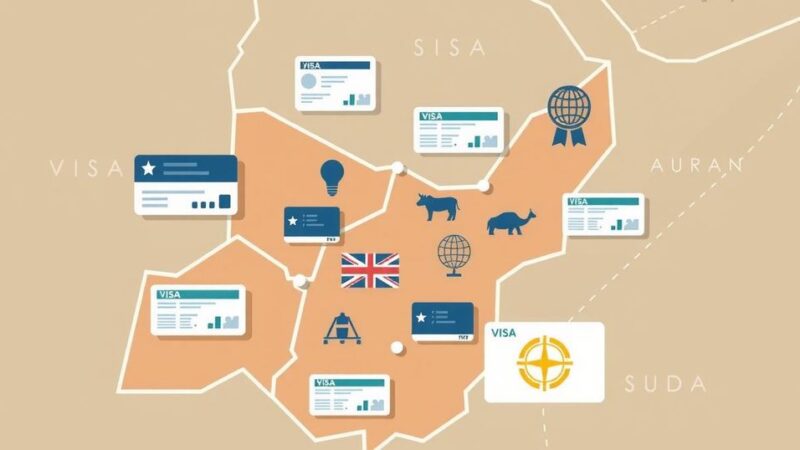An airstrike by South Sudan’s airforce killed 19 individuals near the Ethiopian border, reigniting ethnic tensions and fear of renewed civil war between government forces and the White Army, a group primarily comprised of Nuer youths. Recent events continue to highlight the volatile political landscape and military actions in the region.
South Sudan’s airforce has conducted a significant airstrike in the eastern part of the nation, reportedly resulting in the deaths of approximately 19 individuals. This incident occurred shortly after government forces retreated from the region following intense conflicts with an ethnic group. The clashes involved the White Army, composed mainly of armed Nuer youths, and government troops in Nasir, adjacent to the Ethiopian border.
These hostilities pose a threat of reigniting the civil war that persisted from 2013 to 2018, during which hundreds of thousands perished. The government has implicated First Vice President Riek Machar’s party, representing the Nuer, in collaboration with the White Army, although Machar’s faction has denied such allegations. Recent violence has stirred tensions reminiscent of the previous conflict between Machar’s forces and President Salva Kiir’s Dinka troops.
On March 7, a U.N. helicopter attack resulted in the deaths of a South Sudanese general and approximately 27 soldiers while attempting to evacuate personnel from Nasir. South Sudan’s Information Minister, Michael Makuei, confirmed the airstrike took place on Monday, having been reported by community leader Kang Wan as occurring late Sunday night. Of the victims, 15 died instantly, with additional fatalities from injuries sustained. Reports emerged of burned bodies at the site of the strike.
Médecins Sans Frontières (Doctors Without Borders) stated that their hospital in Ulang treated three patients who were injured during the incident, with two victims succumbing to severe burns upon arrival. Nasir County Commissioner James Gatluak Lew attributed the military action to potential retaliation for the helicopter attack. Furthermore, Uganda has dispatched special forces to South Sudan’s capital, Juba, to bolster security, which the South Sudanese government has publicly denied, despite Makuei acknowledging some Ugandan military units’ supporting role with the national army.
The airstrike by South Sudan’s airforce, resulting in the loss of 19 lives, has escalated ongoing conflicts near the Ethiopian border. This violence, relatable to previous civil war clashes between government forces and the ethnic Nuer community, raises concerns of renewed conflict. The situation remains precarious with international involvement from Uganda and ongoing tensions surrounding Riek Machar’s political faction.
Original Source: myind.net






